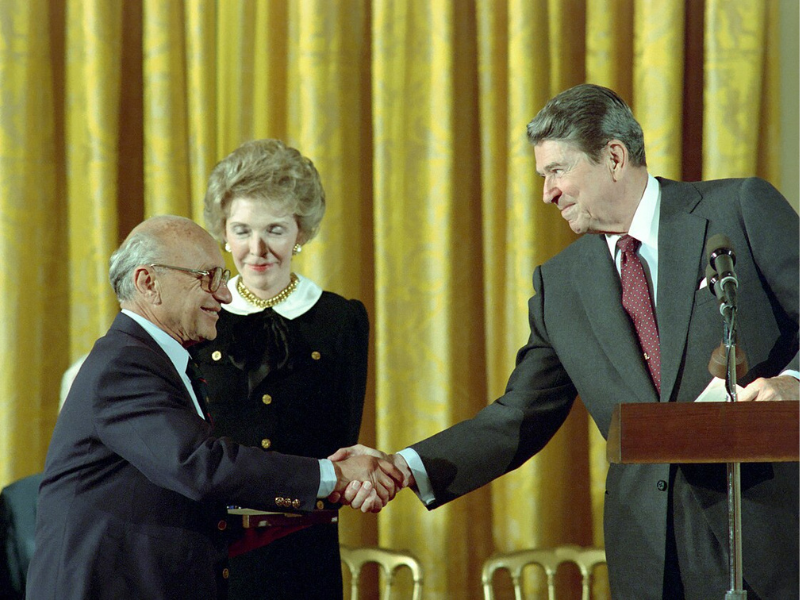For the first time in almost a decade, the Supreme Court is considering a major Second Amendment case.
In New York State Rifle and Pistol Association, Inc. vs. City of New York, New York, the Supreme Court will decide whether to strike down a New York City law that prevents residents from transporting firearms outside of their residences without obtaining a separate permit.
The law has been on the books since 2001, creating a burden for law-abiding gun owners who want to transport their guns outside their homes for a variety of legitimate purposes.
New York City, anticipating it might lose the case, rushed to amend the law in 2019—but it was “too little, too late,” says Sterling Burnett, a senior fellow at The Heartland Institute.
Transporting Firearms
Three New York City residents who had legal permits to own guns filed the suit, saying they should be free to transport their firearms to shooting ranges and competitions outside of New York City. A Jimmy Carter-appointed judge upheld the ordinance in 2013, but the defendants appealed. After the Second Circuit Court of Appeals upheld the original ruling, Louisiana Attorney General Jeff Landry filed an amicus brief calling on the U.S. Supreme Court to consider the case.
Attorneys General from fifteen states followed suit, and also signed an amicus brief urging the Supreme Court to reconsider the case. The Supreme Court heard oral arguments in New York State Rifle and Pistol Association, Inc. vs. City of New York, New York on December 2.
The Supreme Court will decide the question, “Does a New York City rule banning the transportation a licensed, locked, and unloaded handgun to a home or shooting range outside city limits violate the Second Amendment, the Commerce Clause, or the constitutional right to travel?”
‘Settle This Issue’
“The Supreme Court should settle this issue once and for all,” Burnett said. “The Second Amendment is not unclear. It states that the people have a right to keep, which means own, and bear, which means to carry, arms. The Supreme Court has already agreed in other cases that the Second Amendment means what it says. Therefore, the Court needs to start enforcing its own decisions about gun rights. The Supreme Court has already ruled that the Second Amendment cannot be infringed upon by the states.”
If the Second Amendment applies to the individual states, then laws like New York’s have to go, says Burnett.
“States should not be able to carve out exemptions,” Burnett said. “States should be forced to recognize the rights of gun owners from other states. It’s time to get rid of all these junk laws that violate the Second Amendment.”
There is little doubt that New York’s law is unconstitutional, says Lennie Jarratt, a project manager at The Heartland Institute.
“I don’t believe this ordinance is constitutional,” Jarratt said. “You should not have to get permission from the government to protect yourself when you are outside your residence.”
The Supreme Court will likely reference District of Columbia v. Heller and McDonald v. Chicago, two previous Second Amendment cases, when deciding New York State Rifle, says Jarratt. In Heller, the Supreme Court ruled that citizens have a right to keep a loaded gun inside the home for self-defense purposes. In McDonald, the Supreme Court expanded that ruling to apply to the states.
Moving Public Opinion
Left-wing governments like New York City’s know these laws are unconstitutional and will not survive legal challenges, Jarratt said. By enacting them, they are merely “throwing everything at the wall and seeing what sticks,” he said.
“They want to move public opinion to be more anti-gun. In the short term, they turn law abiding citizens into criminals, disarm a portion of the population, and force groups like the NRA and others to spend millions to get these laws overturned,” Jarratt said.
There is no doubt that laws like New York City’s create an undue burden for gun owners, Jarratt said.
“They force law abiding citizens to jump through hoops and pay heavy fees just to exercise their natural rights,” he said. These laws are essentially Jim Crow laws on the Second Amendment. Nobody would allow these types of laws on voting or First Amendment Restrictions, why are they continually passed for the Second?”
Second Amendment ‘Stepchild’
Jarratt says he expects the Supreme Court to overturn the law. “I’m just not sure if the ruling will be narrow or wide,” Jarratt said. “I expect more cases to follow this one.”
“I’m encouraged that the Supreme Court took this case even though New York didn’t want them to do so,” Burnett said. “New York tried to change the law because they knew they were going to lose. However, victory is not guaranteed in this case. On the Second Amendment, you just don’t know where some of these justices will stand.”
The Supreme Court needs to force individual states and cities to stop treating the Second Amendment “like a stepchild,” Burnett said.
“The Supreme Court must say, the Second Amendment is not a stepchild,” Burnett said. “They must send the message that it’s not optional, you must follow it. It’s just as important as the other amendments. They need to affirm that any law that violates the Constitution is going to be struck down.”
Ashley Herzog ([email protected]) writes from Avon Lake, Ohio.




